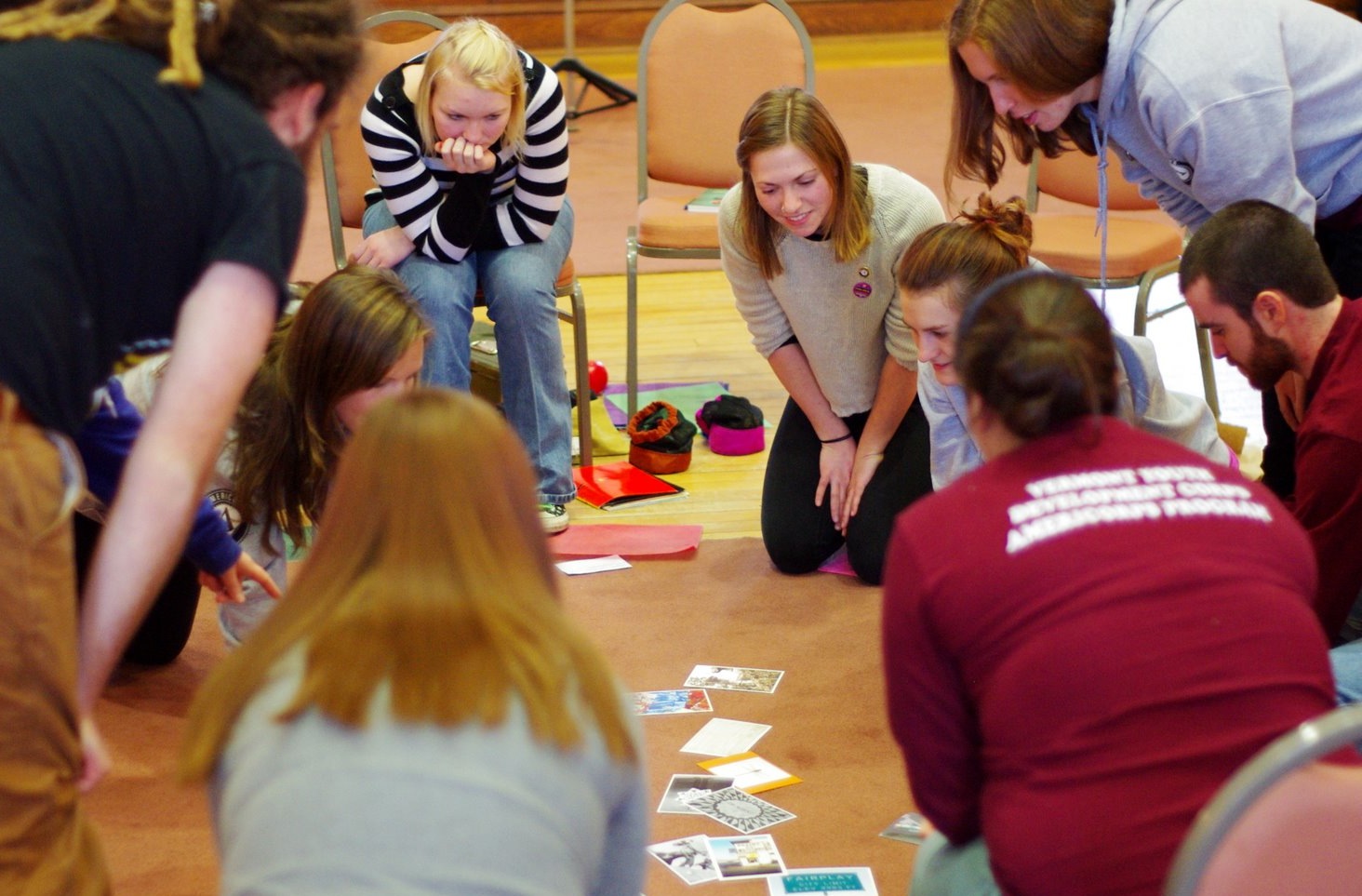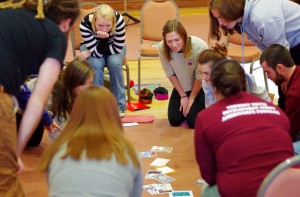
Dec 09, 2013 Allowing for Labor in Learning
You cannot teach a man anything; you can only help him find it within himself.
Galileo Galilei
The art of teaching and group facilitation requires a careful balance of challenge, observation, encouragement, guidance, and the ability to know when to step in to help learners, and when to step back and let them learn through struggling with a problem. Whether I am facilitating in the K-12 classroom, or in team-building situations with community building or organizational groups I often see teachers or group leaders struggle with allowing learners to labor through difficult problems. When I engage students in problem-solving activities in the classroom, the adults or leaders in the room often intervene and try to solve problems for learners, or direct the process rather than letting them work through a challenge themselves. When this happens, opportunities for participants to gain valuable life and academic skills on their own, or with their peers, can be missed.
 Educators are trained to help learners and are sometimes uncomfortable when students are struggling, whether it is with an answer to a question, or communicating and problem-solving with their peers. Educators may feel uneasy when group process looks messy or disordered. Sometimes we jump in to help too early because of our own discomfort or because of our perceived time restraints rather than the group’s actual distress. This can lead to missed opportunities for learners to take ownership and control over their learning and take away meaningful lessons and practical skills. With that said, there are also times when struggling or laboring through the problem becomes too hard, and meaningful learning stops as frustration or anxiety grows. John Dewey referred to these as a “miseducative*” experiences (1938). Navigating this delicate balance between group members’ learning from struggling through a problem and being paralyzed by frustration is where the art of teaching comes in.
Educators are trained to help learners and are sometimes uncomfortable when students are struggling, whether it is with an answer to a question, or communicating and problem-solving with their peers. Educators may feel uneasy when group process looks messy or disordered. Sometimes we jump in to help too early because of our own discomfort or because of our perceived time restraints rather than the group’s actual distress. This can lead to missed opportunities for learners to take ownership and control over their learning and take away meaningful lessons and practical skills. With that said, there are also times when struggling or laboring through the problem becomes too hard, and meaningful learning stops as frustration or anxiety grows. John Dewey referred to these as a “miseducative*” experiences (1938). Navigating this delicate balance between group members’ learning from struggling through a problem and being paralyzed by frustration is where the art of teaching comes in.
This balance has to be discovered and maintained with each learning situation and group of learners as it arises. Effective educators carefully pay attention to the progress of their groups. They are willing to step back and put forward as many questions as answers allowing participants to learn from problems and conflict without jumping in too early to give answers. They learn to be comfortable with the “messiness” or frustration that is necessary in some group learning situations, and are willing to carve out time for a meaningful student-centered resolution to come to fruition. They carefully observe their groups and facilitate opportunities for ongoing reflection and feedback so they know when they need adjust their role to fit the needs of their group.
For interesting reading on this subject of allowing for struggle and labor in learning see Plato’s Theatetus. In this work, one of Plato’s dialogues focused on the nature of knowledge, Plato uses the metaphor of the teacher as the “midwife” of ideas. In this dialogue between Socrates and Theatetus, Socrates compares his role as a teacher to that as a midwife. He shares that a midwife acts as a guide and support. She cannot go through the labor for the mother-to-be; she can only help, encourage, and guide the woman through the process. She only intervenes with the labor when the situation becomes dangerous or too painful.
An effective teacher similarly practices the art of the guide, coach, and supporter in the delivery of learning, but knowledge and understanding are the labor of the student. Socrates states: “The many admirable truths they bring to birth have been discovered by themselves from within. But the delivery is heaven’s work and mine.”(F.M. Cornford, 1934).
When learners feel responsible for their learning and that they have achieved a challenge through their work, they are more empowered to take ownership for future learning, growth, and change. Knowledge gained through meaningful experience on the part of the student and guided reflection and support from the teacher becomes lasting knowledge.
*John Dewey used this term to refer to experiences that get in the way of growth or further education. For example, a lesson that is too overwhelming for a student or too frustrating and causes them to dismiss the lesson entirely.
References:
Cornford, Francis MacDonald (1934) Plato’s Theory of Knowledge: The Theatetus and the Sophist. New York: Liberal Arts Press, 1957 [1934].
Dewey, John. (1938) Experience and Education. New York: Macmillan Publishing Co.
Stanchfield, Jennifer (2007) Tips and Tools for the Art of Experiential Group Facilitation. OKC, OK: Wood ‘N’ Barnes Publishing Co.



Mike Cardus
Posted at 15:38h, 09 DecemberThis facilitation skill of knowing when, what and how to step in when groups are struggling is a fin thing to continually work on. You did a great job of sharing why allowing people to struggle a little bit is very useful in learning. Creating these exceptions are enough to be the small shift that leads to larger outcomes.